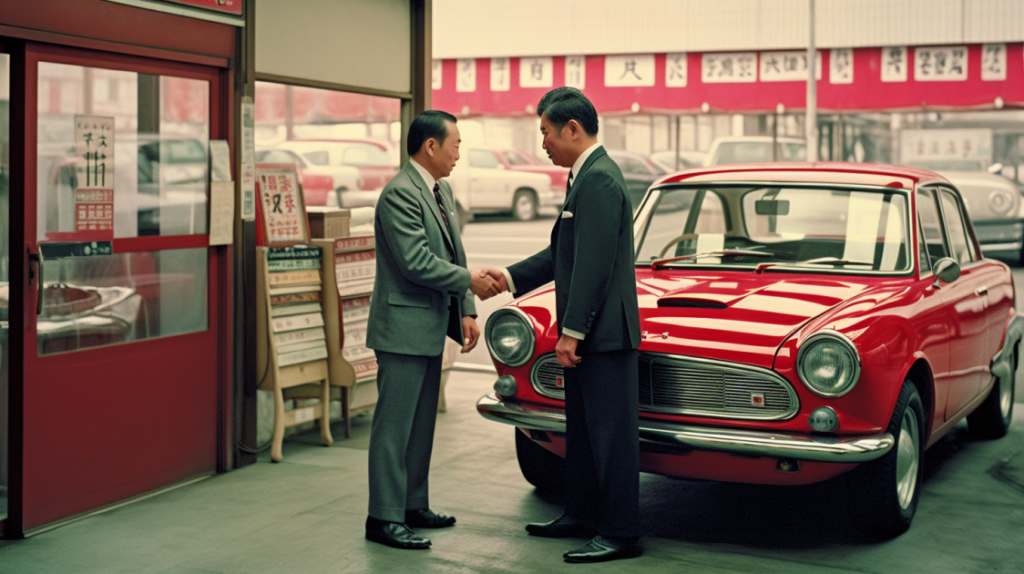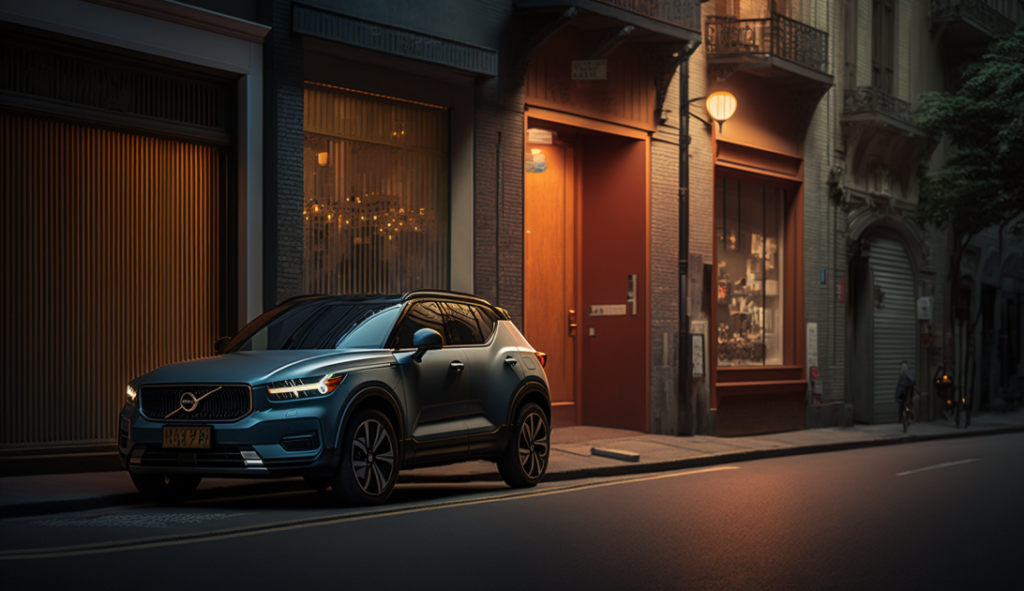Buying a car in Japan as a foreigner can be an exciting and rewarding experience. Japan is known for producing some of the most reliable and high-quality vehicles in the world, and, they are often more affordable than in other countries.
However, it’s essential to be aware of the potential hidden costs and fees that can add up quickly and make the overall experience less pleasant. In this article, we’ll discuss what to keep in mind when buying a car in Japan as a foreigner.

Lower Taxes and Affordable Prices
One of the most significant advantages of buying a car in Japan is that the prices are generally lower compared to other countries. As mentioned in the input, the cars in Japan are typically cheaper, even for foreign brands such as the 2-year-old Volvo XC40, which was purchased with a discount of 35% compared to buying it in my own country. These more affordable prices are mainly due to lower taxation.
Japanese cars, in particular, are even more affordable, which is mostly due to no import taxes at all. However, it’s important to note that the tax system in Japan can be a bit confusing, especially for foreigners. When buying a car, it’s crucial to understand what taxes are included in the price and what additional fees you may have to pay later.
Taxes to pay later when purchasing a car
- Car owner Tax of 36,00JPY per year for everyone who owns a car.
- Road tax based on the weight of the car
- Car tax which is based on the size of the car’s engine
- One time Environmental fee upon purchase, also for a used car
- One Time Recycle fee, also for a used car
Hidden Costs and Fees
One of the significant drawbacks of buying a car in Japan is that there are often hidden costs and fees that are not shown on the website or in the initial price quote. These costs can include environmental fees, registration fees, fees for changing the certificate for m.o.t. to your name, fees for changing the license plate, sales fees, and more. The car purchased by the author ended up being 300,000 JPY more expensive due to these fees than the original sales price on the website.
To avoid surprises, it’s crucial to ask the dealer or seller for a detailed breakdown of all the costs and fees associated with the purchase. It’s also important to note that some fees, such as the environmental fee, are mandatory and cannot be avoided.

Official Inspection and Certificate
In Japan, all cars have to receive an official inspection and certificate for being safe to drive on the roads. These inspections occur every two years and can cost around 70,000 JPY. This is significantly higher than in other countries such as the Netherlands, where the cost is roughly 7,000 JPY.
It’s important to budget for this expense when purchasing a car in Japan, as it can add up quickly, especially if any repairs are needed to pass the inspection. The costs of these potential repairs are not included in the 70.000 JPY inspection costs.
Language and Cultural Differences
Another potential challenge for foreigners buying a car in Japan is the language and cultural differences. While in Tokyo, many car salesmen and women speak English, in other parts of Japan, it may be more challenging to find someone who can communicate in English. In Nagoya, for example, it’s recommended to bring someone who is fluent in Japanese if you are not yourself.

Negotiation and Buying from a Used Car Dealership
If you’re looking to save money when buying a car in Japan, it’s worth considering purchasing from a used car dealership such as Gulliver. These dealerships often have a wide range of cars to choose from, and there is usually some room to negotiate the price. If you have Japanese friends in the Kansai area, it can be helpful to bring them along to do the talking for you. They are famous or notorious, depending on your view, for their negotiating skills.

Car Insurance in Japan
By law, you only need a sort of reliability insurance. This means you are only insured for damages you cause to others. This includes damages to the other person’s car. This insurance is quite cheap and you can expect to pay around 15.000 JPY per year.
This does not include however damages caused if you drive into a three or traffic sign or somebody’s house. It also doesn’t include damages to your own car if you were responsible for causing the accident, theft, window damage, and things like that.
If you want to have decent insurance that covers this thing too the prices can rise quickly. Of course, these prices depend on the value of your car and on the package you select. As an example, you can expect to pay around 150.000 JPY per year for full coverage of a car worth around 4 million JPY.
Other factors that influence the price of your insurance are:
- Your age, above age 35 is the cheapest
- whether you will be the only one driving the car or others will drive it too
- the type of driving license you have; beginner (less than 1 year), green (between 1-3 years without an accident), gold (more than 3 years without an accident)
Other Considerations
When searching for a car in Japan, it’s important to research different dealerships and sellers to find the best deals and quality of vehicles. Many dealerships offer warranties or guarantees on their cars, which can provide additional peace of mind when making a purchase.
It’s also important to consider the different types of cars available in Japan. Japan is known for producing small, fuel-efficient cars, but they also have a range of other vehicles, including luxury cars and sports cars. It’s essential to determine what type of car you need or want and what features are important to you.
In addition to the language and cultural differences mentioned earlier, it’s important to be aware of the different rules and regulations regarding driving and owning a car in Japan. For example, parking can be a challenge in some areas, and there are strict rules about when and where you can park.
Another consideration is insurance. It’s important to have car insurance when driving in Japan, and there are several different types available. It’s crucial to research and compare different insurance providers to find the best coverage at an affordable price.

Finally, it’s important to remember that driving in Japan is different from driving in other countries. The roads can be narrow, and there are different rules and customs to follow. It’s important to familiarize yourself with the rules of the road and driving in Japan before getting behind the wheel. The most important difference for me is obviously driving on the other side of the road and the way the traffic lights work.
Conclusion
In conclusion, buying a car in Japan as a foreigner can be a great way to get a high-quality vehicle at a lower cost. However, it’s essential to be aware of the potential hidden costs and fees, budget for the official inspection and certificate, research different dealerships and sellers, and understand the rules and regulations regarding driving and owning a car in Japan. With proper research and preparation, buying a car in Japan can be a smooth and enjoyable experience.
- Are There Tigers in Japan? Discover the Surprising Truth Behind These Majestic Creatures! - August 3, 2025
- Discover the Charm of Nagoya: Top 10 Must-Do Experiences - November 9, 2023
- Embracing the Samurai Spirit: Beyond the Blade - November 7, 2023
